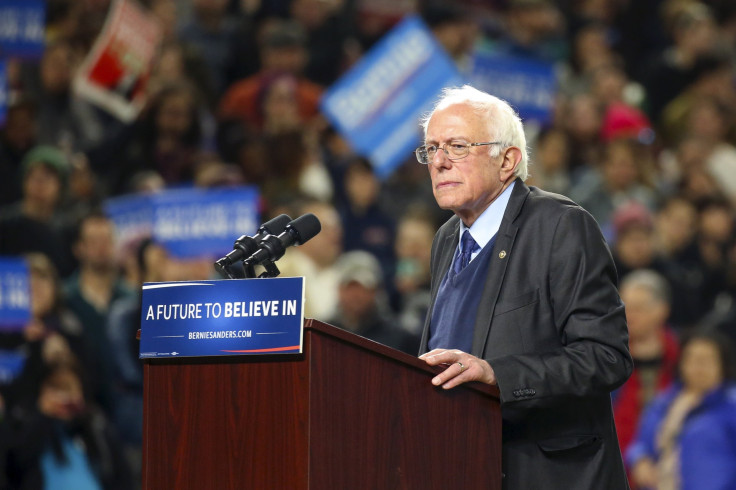Democratic Delegate Count: Can Bernie Sanders Beat Hillary Clinton After Big Weekend Wins?

Following three caucus wins over the weekend, Bernie Sanders has narrowed Hillary Clinton’s delegate lead — but only ever so slightly. Landslide victories in Washington, Alaska and Hawaii are seen as a momentum boost to the Vermont senator’s struggling campaign, but the former secretary of state still seems on course to clinch the Democratic nomination.
Once all weekend votes were tallied, Clinton had secured 1,243 pledged delegates, while Sanders had 975, according to the latest Associated Press analysis. When superdelegates were included, however, Clinton’s tally was boosted exponentially to 1,712, compared to Sanders' 1,004. Sanders, who is cautioning against counting the superdelegates, as they are not bound to a particular candidate, is said he's still hoping to win over their support.
“I think the superdelegates are going to have make a very difficult decision, and that is if a candidate wins in a state by 40 or 50 points, who are you going to give your vote to?” Sanders told ABC Sunday. “Second of all, which candidate is better positioned to defeat Trump or any of the other Republican candidates? I think a lot of the superdelegates are going to conclude that it’s Bernie Sanders.”
Sanders’ campaign seems certain there’s still a way forward. He and Clinton are now focusing on Wisconsin and New York, the next two major primary contests. New York, Sanders' birthplace where Clinton served as senator, is the big prize for both candidates, with 247 delegates.
Sanders is expected to do well in many of the states set to vote in the coming months, including Oregon, Kentucky and West Virginia. But it will take much more for him to secure the nomination. In some states, like Wyoming, he’ll need at least 71 percent of the vote, according to an NPR analysis.
For what it’s worth, many analysts say Sanders’ campaign has already defied the odds. When the white-haired, self-proclaimed democratic socialist stepped into the contest last year, few saw him as a serious contender to Clinton, one of America’s most recognized political figures.
Yet, even as his campaign has gained ovewhelming support from young, progressive, first-time voters, he's struggled to attract minority votes. And Clinton managed to crush him, state after state, in the south. Sanders' campaign is looking for his passionate grassroots support to translate into high voter turnout in the months to come.
“We are making significant inroads in Secretary Clinton’s lead,” Sanders told supporters at a rally in Madison, Wisconsin, Saturday night, as the returns came in from Washington and Alaska. “We have a path toward victory.”
© Copyright IBTimes 2024. All rights reserved.












